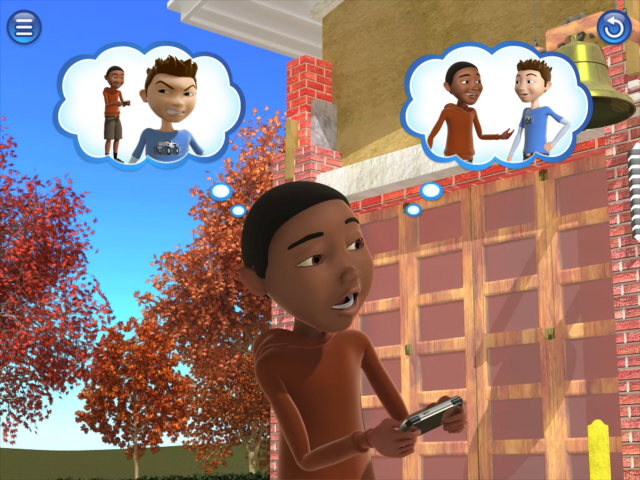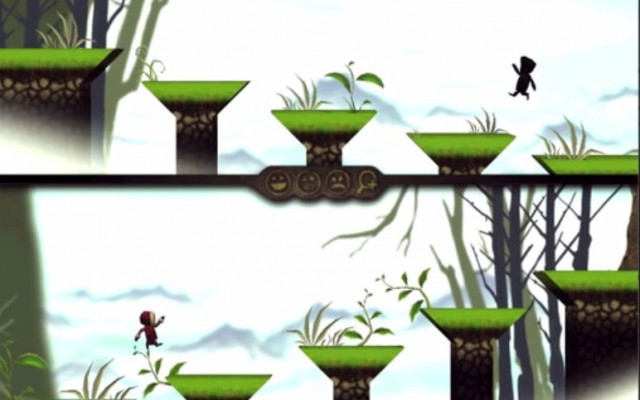By Tanner Higgin, Common Sense Education
Play is nothing if not social. Games organize play, allowing us to wrangle and experiment with the world. When we play games, more often than not, it's us under the microscope.
Video games, however, have been a bit of an aberration in the history of play and games. Many of them have been solitary experiences. That's changing, though. We're in the midst of a multiplayer video game renaissance that's bringing people together. Equally exciting is the trend in design toward video games that build social skills and encourage players to reflect on themselves and their relationships. Here are a few games that do just that.
1. The Social Express
This app features a series of appealing animated episodes that model real world social situations. Rather than passively watching the scenes play out, kids have choices to make, such as helping the characters navigate common social interactions, follow social cues, and make the appropriate decisions. Along the way, they learn key social skills in a safe environment that makes it much easier to transfer the skills into daily life.

2. Thomas Was Alone
Billed as an "indie minimalist platformer," Thomas Was Alone's characters are just colorful shapes, yet they all have distinct personalities. The game's well-crafted narration provides the characters with personality strengths and weaknesses mirrored in differing abilities and mechanics. By guiding these characters through the world and empathizing with them, players naturally map themselves and their relationships on the characters. It’s a great example of how a single player experience can still build social and emotional intelligence. One teacher on Common Sense Education loves that it focuses on "character building" and "made... students stop and think."

3. Way
The most experimental and perhaps most irresistibly interesting game on this list, Way makes collaboration and communication crucial to success. Players get paired together and then guide each other through a level using gesture and non-verbal cues. Players take turns being the guide and guided, experiencing what it's like to be responsible for someone else as well as what it's like to place trust in another. It's a simple but smart concept that helps kids be better collaborators while simultaneously getting them to think critically about all the myriad ways we communicate.

4. Social Adventures
Developed by learning and behavior experts, Social Adventures offers a treasure trove of resources for caregivers or educators looking for ways to help kids --particularly those with learning difficulties or special needs – learn about and practice basic social strategies, skills, and routines. While it's not necessarily a game, it features a host of activities and games caregivers and educators can facilitate with individual kids or small groups.

All of the games above are designed – both explicitly and implicitly – to be pro-social, but what about games that aren't? Caregivers and educators need to recognize that all of the games kids play -- whether on a field, tabletop, or screen – can be deeply social. Kids need the tools to make sure that these gaming experiences are enriching and productive. The games on this list are a good first spark to get kids on their way.

